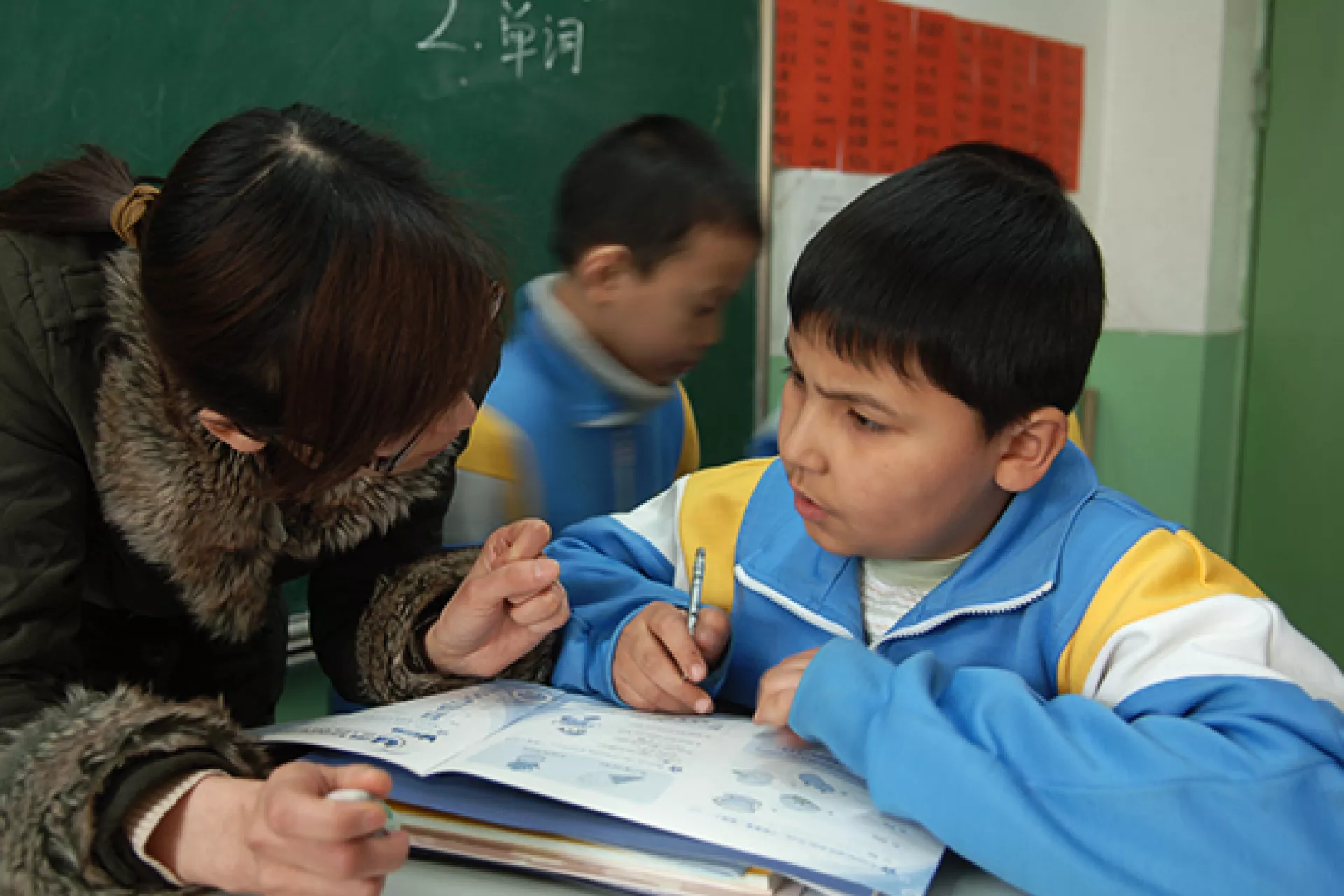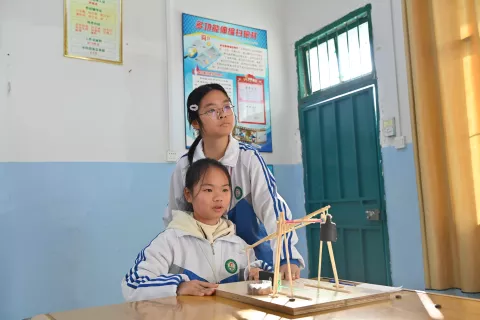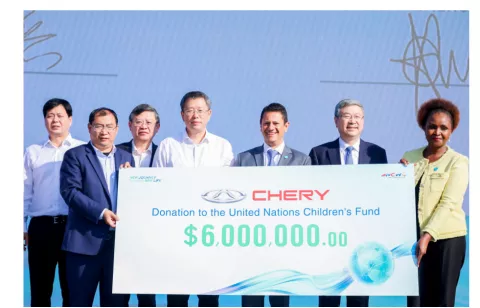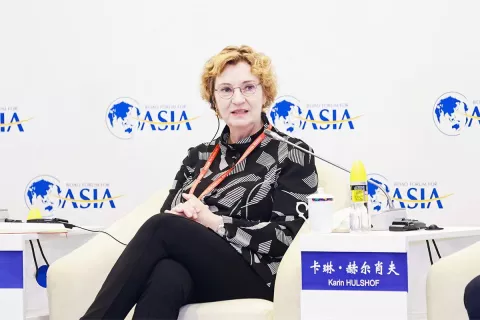I work to help all children dream big
I work to help all children dream big

- Available in:
- 中文
- English
Following university graduation in 1995, I landed a job at a state-owned institution in Beijing and migrated to the capital from my childhood home in the northern city of Tangshan. Around that same time, Tan, a tailor from Anhui Province, also came to the metropolis in search of better living conditions. We both found new homes in the same neighbourhood and after several encounters at her tailoring stall, became acquaintances. As most mothers do, at every encounter we gab about our children, who happen to be the same age.
My daughter Niu Niu and Tan's twin boys are 15. They have grown up during China's fast economic growth and the greater advance of urbanization – two phenomena bringing amazing opportunities and of course challenges (particularly with adequate provision of urban public services). Unfortunately, though we live near each other, our children experience these opportunities differently. Although our children were all born here in Beijing, the circumstances of their parents have created a divide between them.
My first job at the state institution provided me with a Beijing hukou, giving me full entitlement to public services enjoyed by local Beijingers. This means my daughter was born with the protections the Beijing hukou provides, and thus dreams big about her future, including adventures around the world.
Life is different for Tan's family, who do not have a Beijing hukou. The family lives in a rented semi-basement apartment. Tan's elder son dropped out of school, and the younger one is most likely to attend a vocational senior high school rather than a typical high school this fall. Despite ongoing loosening changes, the current policy sets a whole lot conditions for students without a Beijing residence registration to meet if they want to sit for the college entrance examination in the capital, thus reducing their chances of enrolment.
For anyone not familiar with this policy, China's hukou system was created in the 1950s to manage the movement of people between rural and urban areas and thus maintain stability and provide better control of economic development. The hukou system has penetrated almost all aspects of people's lives, from education and health care to employment and marriage. Given its high stakes, a hukou in big cities is a sought-after asset, and some people are even willing to spend a large sum of money to purchase one on the black market.
To some extent, the hukou system denies migrants in urban areas access to quality health care services. Although living in cities, their home area hukou registration means they are not covered by the urban health care system. Tan and her children avoid a hospital whenever they become sick because the out-of-pocket expenses are so high and cannot be reimbursed under the new rural cooperative medical scheme that they enrolled into in Tan's hometown.
UNICEF China, where I now work in the social policy section, has long realized the issue of inequity for children in the urbanization process and is resolved to help migrant children and their families. UNICEF has partnered with government departments, academia and think tanks to advise the Government of China on reforming the hukou system through policy analyses and pilot projects.
In 2014, through collaboration with China's planning agency – the National Development and Reform Commission, UNICEF was allowed to contribute towards the development of the 'State Council Opinion on Furthering Hukou Reform', which was officially released in late July 2014.
That research entailed analysing the entitlement gaps between children living in cities with and without an urban hukou and assessing the challenges of extending basic services to all residents. It then proposed a road map and policy framework to realize equitable public services for all residents in urban areas. The effort seems to have had some impact – we can see reflections of the proposals in the final State Council Opinion on extending basic services to all urban residents, including migrants and their children. The State Council Opinion is a milestone in the reform of the hukou system. Yet, in terms of equitable access to public services, it is only a step in a longer journey. It has theoretically laid the way for migrants and their children to access equitable public services, but we know there are many more obstacles, especially at the subnational level. UNICEF will continue advocating for equal access to social services for China's most vulnerable children and doing so through evidence-based recommendations to the Government.
As an advocate for children's rights and as a mother, I also will continue to work for other children's dreams. I want every child to grow up healthy and strong, benefit from quality education and take for granted access to health care services wherever they live so that they can thrive and dream big for their future – just like my daughter does.




